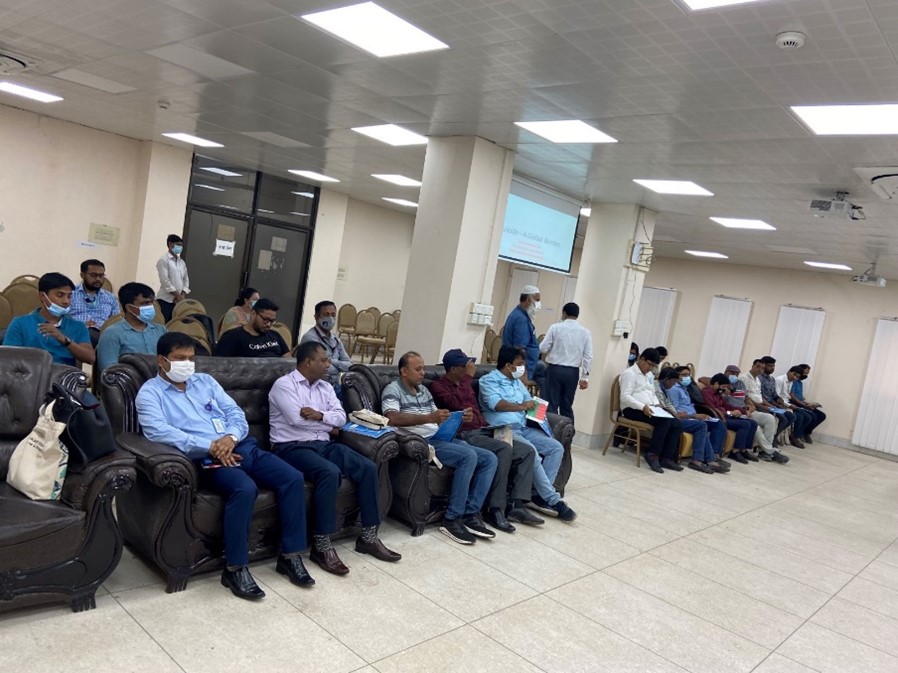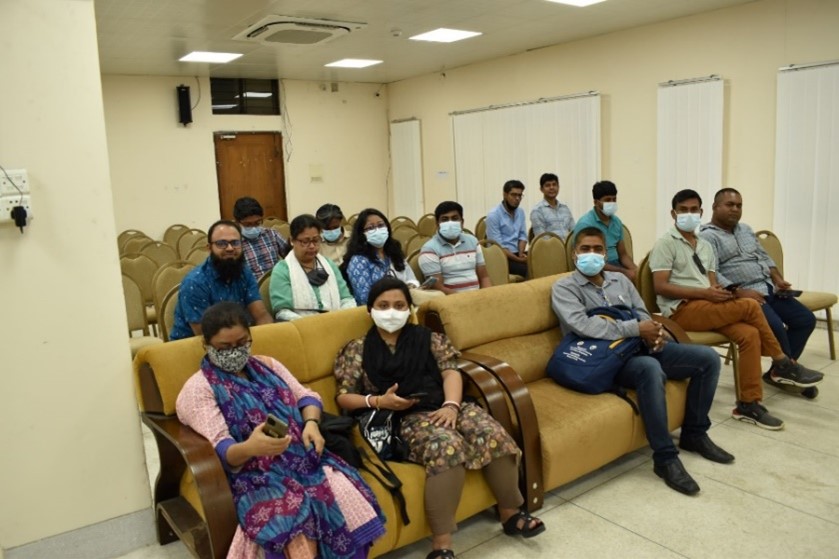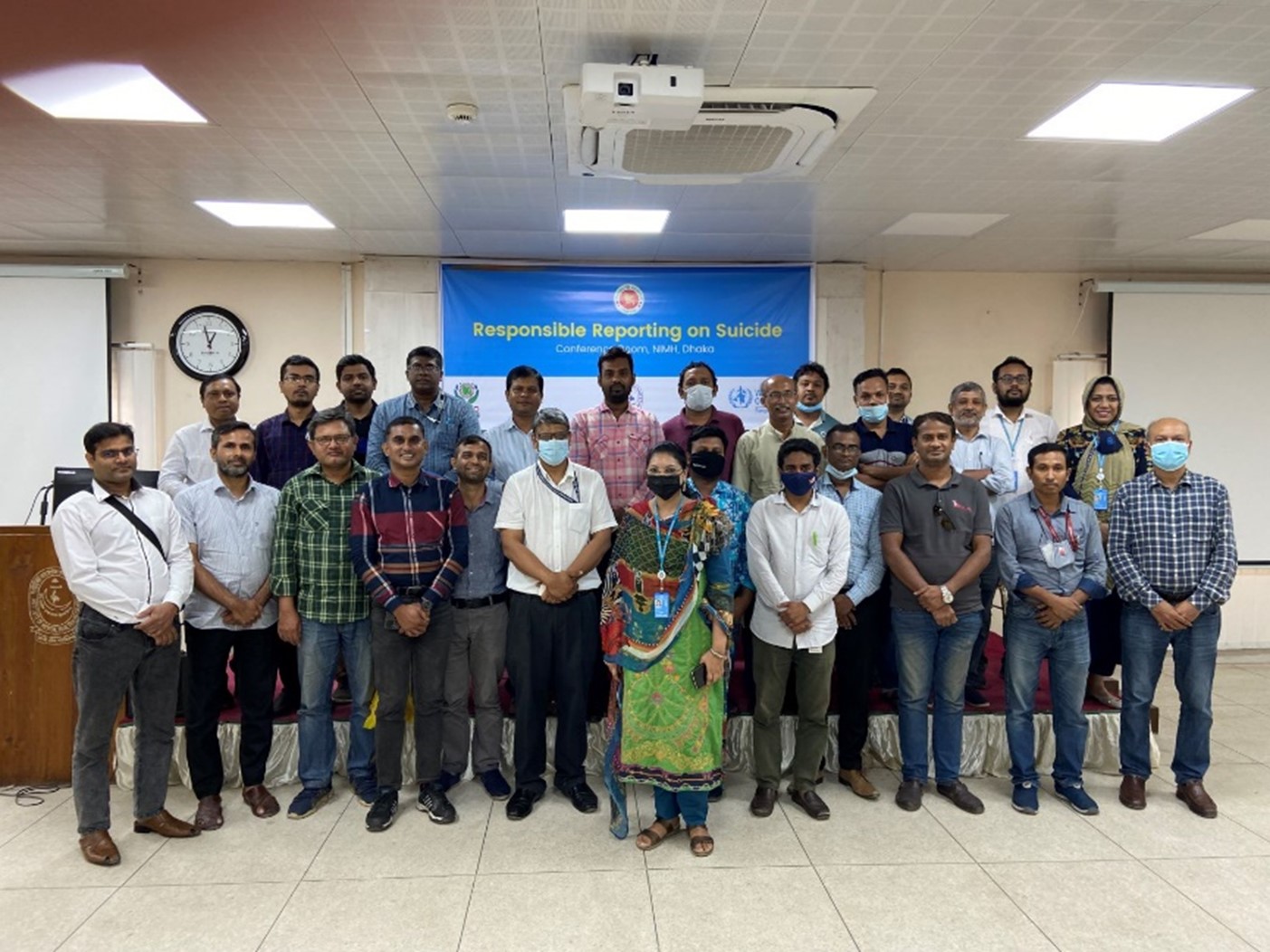-For Media Professionals
"If any journalist starts the report responsibly, it can prevent many suicide and other incidents," says one of the participant journalists who attended the workshop on "Responsible Reporting on Suicide" held on 3 July in the National Institute of Mental Health hall room. With the support of the World Health Organization (WHO) and Directorate General of Health Services (DGHS), the National Institute of Mental Health (NIMH) conducted three one-day workshops from 3-5 July 2022 with more than 60 print, electronic and online media professionals. The key objective of the workshops is to raise awareness and build capacity for responsible reporting of suicide among media professionals.
With the proper health measures, the workshops have taken place. Dr Mohammad Robed Amin, Line Director, NCDC, DGHS, was the chief guest in the one-day workshops and shared his opinion about responsible reporting and its benefit. The director-cum-professor at the National Institute of Mental Health was the special guest in these three one-day workshops. Other senior government officials from DGHS and NIMH attended as special guests. Including two well-known reporters from the national dailies of The Daily Star and Daily Prothom Alo, the staff reporter, Sr. staff reporter, and correspondent from the Daily Sun, the New Age, the Financial Express, Bangla Tribune, Bhorer Kagoj, Shmokaal, Bangladesh Protidin, Kaler Kantha, Jugantar, Shangbad, etc. participated in the workshop. The electronic media staff reporter, Sr. staff reporter, and special correspondent from Bangladesh National TV, 71 TV, Nagorik, Boishakhi, ATN News, Ekkator TV, Banglavision TV, RTV, and GTV participated in the training workshop. There are several online news portals, including BD News 24. Com, Barta 24, Jagonews 24 many others have joined the event.

Photo credit: WHO Bangladesh/Salma Sultana

Photo credit: WHO Bangladesh/Salma Sultana
Dr Helal Uddin Ahmed, Associate Professor, National Institute of Mental Health, Dhaka & WHO Programme Manager for Mental Health and Substance Abuse, was the lead facilitator of the workshop. Based on WHO Global resource material, NIMH developed a draft Bangla resource material on “Preventing Suicide: A resource for media professionals” in 2022. A resource Person from WHO introduced the Bangla guideline to the participants, discussed the content and received feedback. Several other Mental Health professionals took sessions on mental health and suicide prevention.
Participant actively contributed their thought and feedback to the resource materials. They also shared their difficulties during the reporting, especially on suicide. They have suggested conducting this type of workshop with the editor and chief editor who finalized the news and the police related to the postmortem.
Attended, each media professional admitted the importance of responsible reporting and how it can affect the readers if it is not happening. “This workshop is essential for all media professionals focusing on sensitive issues like suicide, and I can assure the result in the coming days reporting.” – said a participant & media professional of the workshop.
Suicide is one of the priority conditions in the WHO Mental Health Gap Action Programme (mhGAP), which provides evidence-based technical guidance to scale up service provision, and in the comprehensive mental health action plan 2013-2030, WHO member states have committed themselves to work towards the global target of reducing the suicide rate. With this, the workshops guided to media professionals on how to report suicide responsibly as part of preventing suicide and shared current reporting practices. For more information on the issues covered in this web story, please contact ssultana@who.int

Photo credit: Md Kamruzzaman Mukul, National Institute of Mental Health
